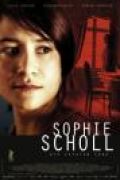
Directed by
Mark Rothemund
117 minutes
Rated MA
Reviewed by
Andrew Lee

Sophie Scholl - The Final Days
Synopsis: Sophie Scholl is a member of The White Rose, a group of student activists committed to voicing their protest to the Nazi regime and the war. When their resistance activities are discovered and they are imprisoned, Sophie’s commitment to her cause is put to the ultimate test.
Something is happening in Germany. Filmmakers are beginning to talk about the German resistance movements which sprang up in opposition to the Nazis. Films like this, Margarethe von Trotta’s Rosenstrasse (2003) and the Martin Doblmeier documentary on Dietrich Bonhoeffer (2002) are beginning to appear. On the one hand, some might claim this is an attempt to absolve the German people of their part in the atrocities of the Nazi era. In reality, films such as this are very brave. They throw into sharp relief the complicity and capitulation of the majority to a massive self-willed ignorance. That a few were willing to oppose does not excuse the majority, it only shames them. The maturity and courage displayed in making films such as this is to be applauded.
A testament to the dignity of hope and resistance against evil, Sophie Scholl is a moving film about the unbreakable conviction of one young woman and her willingness to risk death to act on her beliefs. Few films so economically and convincingly illustrate the well of inner strength that comes from the knowledge of doing the right thing.
Julia Jentsch plays Sophie, a 21 year-old girl who loves music and has an untouched innocence of youth about her. The action for which she and her brother are caught is as much a prank as it is a highly dangerous act of resistance. They print off a tract decrying the state of the war and the dangers for Germany and state that the only way for Germany to survive is to lose as quickly as possible. Treasonable stuff as far as the Nazis are concerned. They leave bundles of copies across the university that they attend, but just as lectures end Sophie flicks the last stack over the edge of the balcony into the great hall, as all the students emerge. This simple action sums up so much of her, childlike but with great conviction and purpose driving her. Captured, the film simply follows her arrest, interrogation, confession, conviction and execution.
The film follows the events in an unhurried and non-sensational manner. There are no overblown theatrics, no gross misuse of symbols, just a simple matter-of-fact approach to what happens. The film is notable for the near total absence of Nazi imagery, a deliberate choice, which focuses attention not so much on the historical context, but on Sophie herself, and her inner battle to remain true to her ideals.
The interrogation is intriguing, as it does not involve physical violence of any kind. There is a lamp in her face, but that’s about all. It speaks heavily to the attitude of the times, she is even regarded as a weak target, simply for being a woman. And her youth once again is highlighted as she behaves more like a girl before the headmaster than someone being prepared for execution. As her alibi unravels she does not crumble though, she just accepts that the game is up and confesses, proud of her action although somewhat fearful of the consequence. When offered the chance to recant, to blame others for her own choices, to say that she was led astray, she refuses. To see a demonstration of such strength of character in someone so young is truly beautiful to behold.
Based heavily on the actual transcripts of Sophie’s interrogations as well as other documents which have surfaced concerning her final days, the film still suffers slightly from a lack of contextualisation as we don’t know a lot about Sophie and her friends. The White Rose is more a background detail (though it has been covered by others in another film, appropriately enough called The White Rose (d.Michael Verhoeven, 1982). We learn bits and pieces, but this is far from a complete portrait of the group or of Sophie. But these are quibbles when faced with the force of the performances, the gently confident direction and the power of the story itself. This is a spare film about powerful ideas and their strength to carry a person placed in extremis. While obviously dramatised, the film is nevertheless a moving testament to a remarkable young woman, and the epilogue to the film gives a soaring sense of hope. The tract that Sophie and her confederates wrote and distributed lived on in a most amazing way. While some may never live to see their dreams fulfilled, their dedication to a noble purpose can bring its rewards to others who follow. Powerful and inspiring.

Want more about this film?


Want something different?




